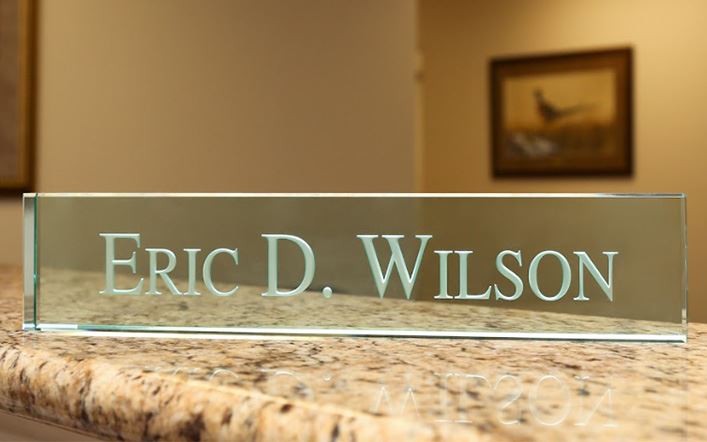
San Antonio Trust Attorney
Protect Your Future with Reliable Trust Planning in Texas
If you want to protect your assets, support loved ones, or create a legacy, our team at Wilson Law can help guide you with clear and personalized advice. For over 35 years, we have advised San Antonio families and business owners navigating the often complex world of trusts. Our straightforward approach provides confidence as you make decisions for your future, no matter your goals or family structure.
Call (210) 405-4919 today to schedule a conversation with our San Antonio trust lawyer.
Why Choose Us?
Choosing a trust lawyer involves more than legal experience—it requires real communication and genuine care. For decades, families and businesses throughout the region have turned to our dedicated team for personalized service and local understanding. Our trust lawyers value your priorities, whether you own a family business, plan for children, or seek to protect your privacy.
- Proven local experience: We have served the San Antonio community since 1983, adapting our approach as laws and local needs change.
- Personalized attention: Our process begins with understanding your values, concerns, and long-term goals, so we can shape the right solution for you.
- Enduring trust and loyalty: Our firm’s growth comes primarily from word-of-mouth and referrals. Clients return and recommend us for the respect, honesty, and care they receive.
- Full-service planning: Trusts often work best as part of a comprehensive estate plan. We advise individuals and businesses on the full picture, offering practical support for every stage.
Custom Trust Solutions & Estate Planning for Texas Residents
Our trust lawyers in San Antonio shape strategies to fit your life, whether you want to avoid probate, provide for dependents, or protect a family business for the next generation. Your choice of trust should match your needs.
Here are a few options we commonly guide clients on:
- Revocable living trusts: Manage assets during your lifetime and ensure a smoother transfer to your chosen beneficiaries.
- Irrevocable trusts: Explore solutions for protecting certain assets or achieving specific planning goals.
- Testamentary trusts: Structure ongoing support for children or dependents after your lifetime.
- Special needs trusts: Create protection for loved ones with disabilities, balancing support and public assistance eligibility.
- Charitable and family trusts: Give gifts, manage succession, or support causes with long-term security.
What to Expect When Working with Our San Antonio Trust Lawyer
Here is how we guide you during each step of trust creation and long-term planning:
- Initial conversation: We listen to your goals, priorities, and concerns to understand your situation fully before discussing legal options.
- Review of assets and wishes: We help you organize your assets and clarify who should benefit, considering special family or business circumstances.
- Tailored trust recommendations: We offer feedback on your choices, presenting the pros and cons under Texas law so you can make informed decisions.
- Document preparation: We prepare and review all necessary documents with you in a way that fits your vision and complies with local standards.
- Ongoing support: Life changes. Our team remains available for updates and questions, supporting clients and families for the long term.
FAQs
What is the main benefit of creating a trust in Texas?
Setting up a trust lets you manage and distribute your assets privately. Trusts often help families avoid probate, making handling your affairs smoother and more cost-effective in many cases.
How does San Antonio’s probate process affect trust planning?
While Texas probate is sometimes less complex than in other states, court oversight still applies. Using a trust helps transfer assets outside probate, adding privacy and often less delay for beneficiaries.
Who typically needs a trust instead of just a will?
Anyone with complex wishes—such as blended families, minor children, business interests, or privacy needs—often finds that a trust gives them more control and flexibility over how assets pass to loved ones.
Are trusts reviewed or overseen by Texas courts?
Most trusts operate outside of court once established, except under rare circumstances like disputes among beneficiaries. This independence means many families prefer trusts for their estate planning.
Can I change the details of my trust after it is set up?
Revocable living trusts can be updated while you are alive and capable. Changes to irrevocable trusts are usually much more limited, so it is important to speak about your goals with a trust attorney before making a decision.
Start Planning with Our Trusted San Antonio Trust Lawyer
We understand that thinking through trusts and estate planning can make anyone feel uncertain, especially if it is your first time making these decisions. Our trust lawyers in San Antonio answer your questions, provide clear next steps, and support your priorities with the care and attention your family deserves. When you connect with our team, you receive clear answers and guidance shaped by decades of service in Bexar County.
Call (210) 405-4919 today to schedule a conversation with our San Antonio trust attorney.
Have Questions?
We Have Answers!
-
What is a “legal separation?”Texas, unlike other states, does not recognize a “legal separation.” Instead, temporary orders concerning marital issues (financial issues, child conservatorship, matters of residence) can be granted while a divorce is pending.
-
What does a “temporary order” mean in Texas?
Texas law does not recognize “legal separations.” Instead, after a divorce is filed, either party may request a “temporary order,” which determines the temporary situation until the divorce is decreed.
For example, a temporary order can dictate who will remain in the house, pay what bills, and visitation matters for the non-custodial parent. It’s important to understand that a temporary order is not always required.
Also, if the parties involved agree to the temporary order, there may not need to be a hearing. However, some situations are so volatile that a judge is asked to impose a temporary order after listening to the evidence presented.
-
In Texas, is marital property automatically divided 50/50?Texas law does not insist that property must be divided equally. Instead, a judge will divide the community estate into a “just and right” division.

